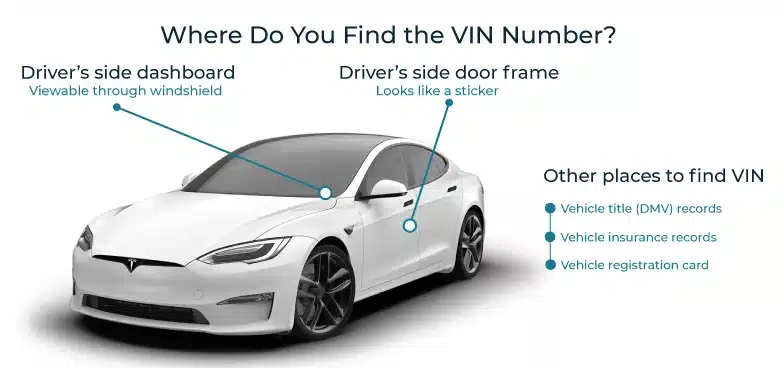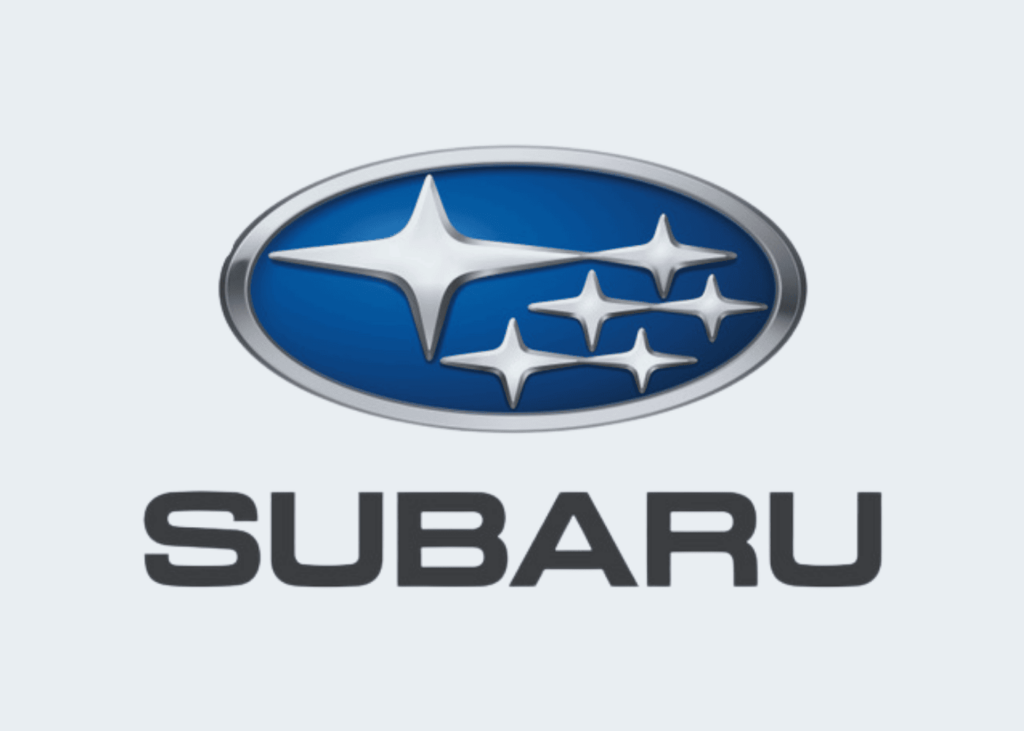
Subaru Recall Check
A Subaru Recall Check provides detailed information on recalls. With this, you can stay proactive, protect your Subaru’s value, and schedule any necessary repairs today.
What is a Subaru Recall?
Subaru is known for producing safe, reliable, and adventure-ready vehicles, with popular models like the Outback and Forester offering all-wheel drive and advanced safety features. The EyeSight Driver Assist Technology, for example, helps reduce rear-end crashes by 85%.
However, like any automaker, Subaru is not immune to recalls. A recall occurs when a manufacturer or the National Highway Traffic Safety Administration (NHTSA) identifies a defect that poses a safety risk. For instance, certain 2020-2022 Outback models were recalled due to a potential airbag issue. Owners of affected vehicles are notified and typically receive free repairs.
Why Should You Check the Subaru Recall History?
When buying a used Subaru, checking for recalls is crucial. Subaru vehicles are known for their safety, but even the best models may have unresolved recall issues. Addressing these recalls early ensures you won’t face costly repairs or safety hazards.
Below are some details of why you should check the recall:
1. Avoid Unsafe Subarus
Subaru recalls are issued when a vehicle has defects that could compromise safety, from minor faults to significant risks. These issues might affect the vehicle’s performance and pose a danger to the driver and passengers. Acting on a recall swiftly guarantees free repairs and helps avoid accidents.
Checking your Subaru’s recall status ensures that it meets federal safety standards and is safe to drive, providing you with peace of mind on the road.
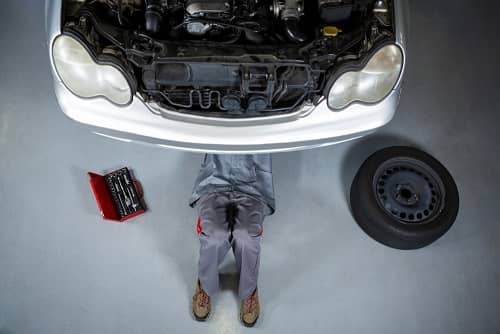
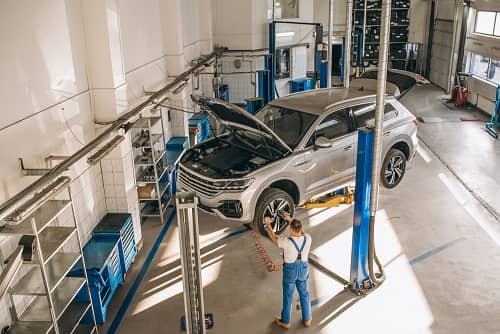
2. Compliance
Checking your Subaru’s recall history is crucial for safety and compliance. Manufacturers are required to fix any defects for free, so being proactive can help you avoid legal liability, protect your resale value, and prevent insurance complications.
If you’re buying a used Subaru, an unresolved recall may mean the vehicle isn’t compliant with federal safety standards, potentially leading to legal issues and difficulty selling it later. Stay on top of recalls to ensure your Subaru remains safe and compliant.
3. Peace of mind
Checking your Subaru’s recall history is essential for uncovering safety issues like airbags, brakes, or other defects that may not be immediately visible but could pose serious dangers.
By running a Subaru recall check, you gain peace of mind knowing your vehicle is free from any unresolved issues. It ensures you remain compliant with safety standards, helping avoid costly repairs and potential accidents. A recall-free Subaru keeps you confident every time you hit the road.

How to Run Subaru Recalls
Running a Subaru recall check is quick and simple. Follow these steps to get your Subaru recall report instantly:

Locate Your Subaru VIN
Find the 17-character VIN on the driver’s side dashboard, door jamb, or vehicle documents (title, registration, insurance). Our service works for all Subaru models, even classics.


Fill in the Form
Start your Subaru recall check now by entering your VIN in the form above. No VIN available? Just enter your license plate number, and we’ll generate your recall report immediately.


Receive Your Subaru Recall Report
Wait a moment for your Subaru recall report to appear. This will provide important details about any outstanding recalls on your vehicle.
What is on the Subaru Recall Check Report?
A Subaru recall check shows detailed information about safety recalls affecting your vehicle. Each record outlines when the recall was announced, which component is impacted, and what action you should take. Read further to see the detailed breakdown:
- Date of recalls: Indicates when Subaru and NHTSA issued the recall.
- Affected Component: This outlines the specific component affected by the recall, providing clear information on the defect for your Subaru.
- Consequences: This outlines the impact of the defect on your Subaru or other issues if not addressed.
- Next step for the affected Subaru: Confirm if your Subaru is listed under the recall and schedule repairs. With a complete Vehicle Report, you’ll also see past recalls and repair status.
A Subaru vehicle history report also includes past owners, theft records, accident records, lien/loan records, and more. Review the records below:
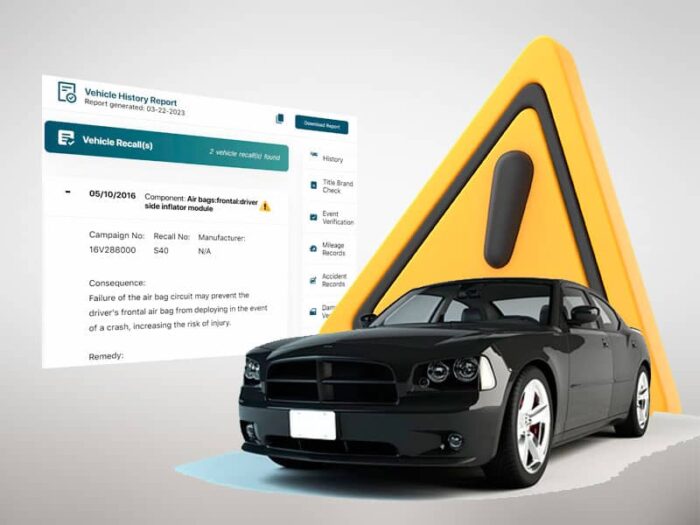
Past Owners
Verify your Subaru’s ownership history, including the number of previous owners, purchase dates, and locations. Get a complete report on your Subaru’s journey to ensure you’re making an informed decision.
Theft Records
Check if your Subaru has ever been reported as stolen. Our report will show you the locations, dates, and sources of any theft incidents to protect against potential ownership issues.
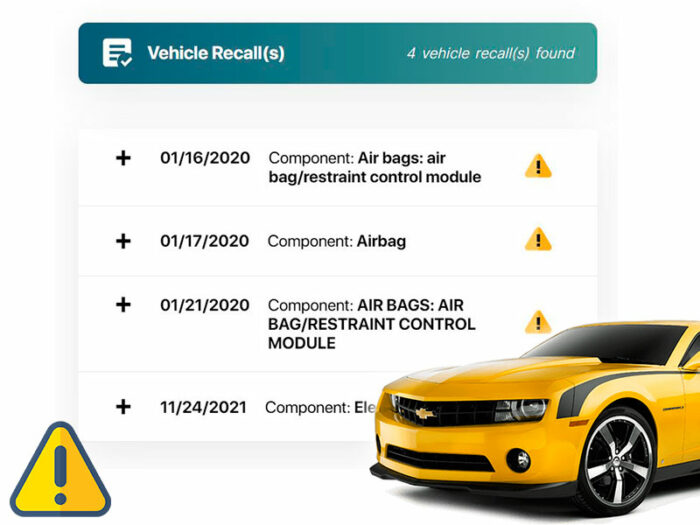
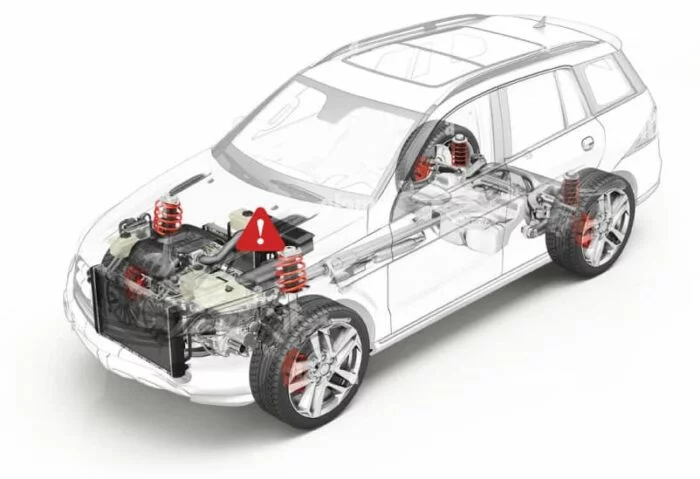
Accident Records
Discover if your Subaru has been involved in any accidents. Our detailed report will show the date, location, frequency, and severity of past accidents to help you make a safe purchase.
Lien/Loan Records
Check Subaru’s Lien/Loan Records to confirm if there’s any outstanding financial interest in the vehicle. Protect yourself by ensuring there are no unresolved liens before you purchase your Subaru.
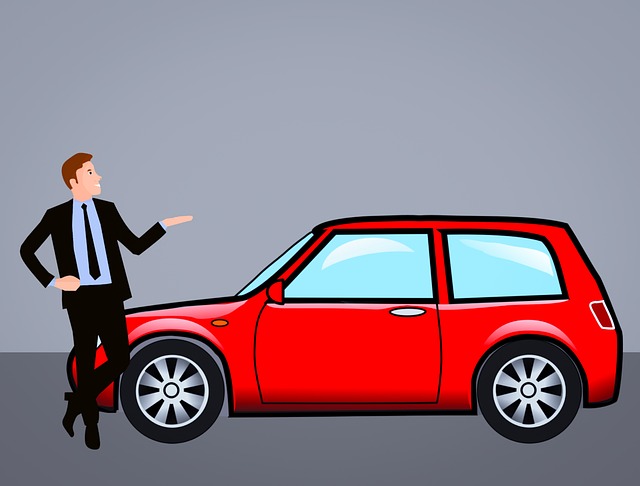
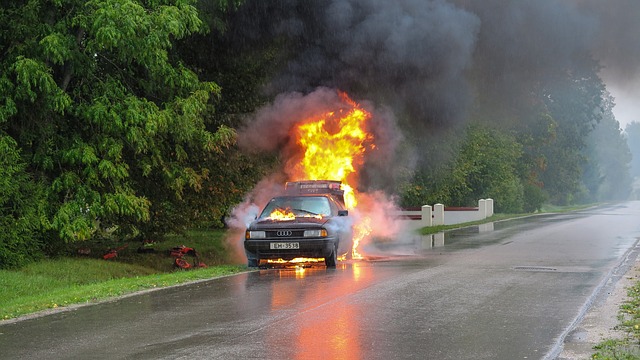
Vehicle Specifications
Get an easy-to-read Subaru Vehicle Specifications, highlighting all specifications of the vehicle, such as year, make, model, trim, engine and transmission specs, fuel type, drive type, etc.
Warranty Status/Coverage
View Subaru’s default warranty information and coverage details. Knowing your vehicle’s warranty status gives you peace of mind during the early years of ownership, ensuring full protection for your Subaru.
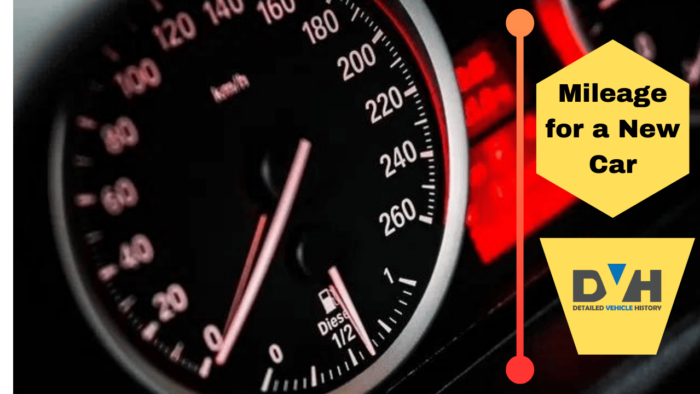
Common Issues Leading to Subaru Recall
Subaru vehicles have faced several recalls due to safety and reliability concerns. Issues include critical safety risk, control loss, stall hazard, and other notable issues like headlight defects and window defrosting failures.
Critical Safety Risks
Improperly Fastened Ground Bolts (PTC Heater)
Subaru is recalling certain 2019-2022 Ascent SUVs due to improperly fastened ground bolts. These bolts play a key role in the vehicle’s electrical grounding system, and if left unchecked, they can cause sparking, leading to a significant fire risk.
Subaru is offering free inspections and repairs for affected vehicles. Owners are advised to park their vehicles away from structures and avoid leaving them unattended while running until repairs are completed.
Improperly Fastened Child Seat Anchor Bolts
Subaru has issued a recall for 2025 Forester Hybrid models due to improperly fastened child seat anchor bolts. These faulty anchors pose a serious safety risk, as they could fail during a crash, potentially allowing a child’s seat to become detached. The recall affects models manufactured between November 2024 and March 2025.
More than 2,900 vehicles are affected. Subaru urges owners to check whether their cars are affected and visit a dealership for a free repair. Affected owners will be notified by mail.
Fuel System Issues
Subaru is recalling certain 2019 Ascent, Legacy, Outback, and Impreza vehicles, due to the low-pressure fuel pump with an impeller that could become deformed, potentially causing the engine to stall, later additional cars equipped with the same faulty Denso low-pressure fuel pump, expanding the list to include certain 2019–2020 Ascent and 2018–2020 Impreza, Legacy, and Outback models.
Occupant Detection System (ODS) Sensor Defect
In March 2024, Subaru recalled approximately 119,000 2020-2022 Outback and Legacy vehicles due to a defect in the ODS sensors. Faulty circuit boards in the ODS sensor could cause a capacitor to crack, resulting in a short circuit. This defect can prevent the front passenger airbag from deploying in the event of a crash, increasing the risk of injury. Subaru will replace the affected ODS sensors at no charge to the owners.
Takata Airbag
The Takata airbag recall affects several Subaru models, including Legacy and Outback models. The issue stems from faulty airbag inflators containing non-desiccated ammonium nitrate, which can explode upon deployment, sending metal shrapnel into the vehicle. This recall, among the largest in history, has multiple NHTSA campaign numbers, including 20V001 (2020) and 24V-227 (2024).
Control Loss
Brake Line Corrosion
In 2014, Subaru issued a recall for 2008-2011 Impreza, 2008-2014 WRX/STI, and 2009-2013 Forester models due to brake line corrosion caused by exposure to road salt. This corrosion could result in fluid leaks and brake failure, particularly in cold climates where salt is used to treat roads.
Dealers replaced corroded brake lines and applied anti-corrosion wax. The recall affected regions where road salt was heavily used, like the salt belt states.
Power Steering Failure
Subaru has issued multiple recalls related to power steering issues, including one for a 2019 Forester and Crosstrek due to a faulty Electronic Power Steering (EPS) unit (NHTSA ID 19V-065). This issue occurs when a connector inside the EPS unit short-circuits, making the vehicle harder to steer, increasing crash risks.
In addition, 2016-2017 Legacy and Outback models were recalled for a steering column defect (NHTSA ID 16V-292), where a manufacturing error could cause a complete loss of steering control.
Wheel Attachment Issue
In January 2025, Subaru issued a recall for more than 20,300 of the 2025 Forester vehicles due to an issue with their 18-inch aluminum alloy wheels. A manufacturing error caused the lug seat surface to be incorrectly specified, preventing the wheels from attaching securely. This defect compromises vehicle stability, making it harder to control, and increases the risk of a crash. Subaru dealers will inspect and replace any defective wheels free of charge.
Other Notable Issues
Headlight Defects
In 2022, Subaru issued a recall (NHTSA ID 22V-624) affecting approximately 188,000 vehicles of the 2017-2019 Imprezas due to defective halogen headlamps. The issue involves dimming reflectors that fail to meet Federal Motor Vehicle Safety Standards (FMVSS) No. 108, reducing visibility and causing glare for other drivers.
The problem stemmed from a damaged mold used during production. Affected vehicles will have both headlamp assemblies replaced at an authorized dealer for free.
Window Defrosting Failures
In September 2025, Subaru recalled nearly 95,000 electric vehicles, including the 2023-2025 Subaru Solterra EV, due to a software issue in the HVAC system. The bug can disable the defroster, leading to reduced visibility from frost, ice, or fog.
Affected owners will receive free repairs, including software updates and compressor inspections. Notifications will be sent out starting in October 2025.
Understanding the Subaru Recall Process
The NHTSA begins the recall process by investigating reported issues. If a defect is found, the manufacturer must issue a recall. See the steps of their process below
1. Report the Problem
Notice a defect on your Subaru? Submit a complaint to NHTSA. Each entry is logged and compared across VINs. Multiple similar reports signal a safety defect and may trigger a formal investigation.
2. Investigation
Once a complaint is submitted, the NHTSA follows a multi-step process to determine whether a recall is necessary.
- Screening: Complaints from vehicle owners are examined for credibility and evidence to decide if further investigation is justified
- Analysis: Defect petitions are reviewed in detail. If denied, the decision and reasoning are publicly posted in the Federal Register.
- Investigate the Issues: When Subaru’s safety concerns are confirmed, NHTSA launches a formal investigation, ending in either no defect or a recall.
- Recall Management: NHTSA ensures owners are notified and monitors repair completion rates.
3. Recalls
A safety recall means the manufacturer must inform owners and correct the problem. Recalls happen when a vehicle or component is unsafe or doesn’t meet regulations. Most are voluntary, and manufacturers are required to repair, replace, refund, or buy back the affected vehicle.
How Subaru Vehicle Recalls Are Handled
When a safety issue occurs in a Subaru, three key groups are involved in the recall process: the manufacturer/ automaker, NHTSA, and you, as the vehicle owner. They work together to detect defects, notify drivers, and ensure repairs are completed to keep vehicles safe.
Automaker Role
Subaru works closely with NHTSA to monitor vehicle safety and address potential issues. If a defect is found, Subaru informs all registered vehicle owners by first-class mail within 60 days of notifying NHTSA about the recall.
Subaru’s proactive and transparent approach to handling vehicle recalls shows Subaru’s commitment to safety and customer trust, helping owners keep their vehicles safe and reliable.
NHTSA’s Role
NHTSA acts as a regulator, investigator, and public monitor for vehicle recalls, working with automakers like Subaru to ensure defects are addressed according to federal law. While automaker (Subaru) often initiates recalls, NHTSA is the primary government authority overseeing the entire process.
This partnership ensures that all safety issues are addressed promptly, protecting drivers and reinforcing Subaru’s commitment to vehicle safety.
Your Role as the Vehicle Owner
To ensure you receive all recall notifications, keep your contact information updated with Subaru. This includes updating your address if you’ve moved or informing them if you’ve sold your vehicle. Failure to do so may result in missed safety notifications.
And if you’ve already paid for a repair related to the recall, you may be eligible for reimbursement.
Get Subaru Window Sticker by VIN
Don’t buy a pre-owned Subaru without knowing the full specs and features. By accessing the Subaru window sticker by VIN or license plate number, you’ll receive important details such as original factory specs, interior and exterior options, safety features, and even the MSRP.
Whether you’re buying a used Subaru or just verifying your own, this window sticker ensures authenticity, accuracy, and transparency. Protect your investment and get the details you need today.
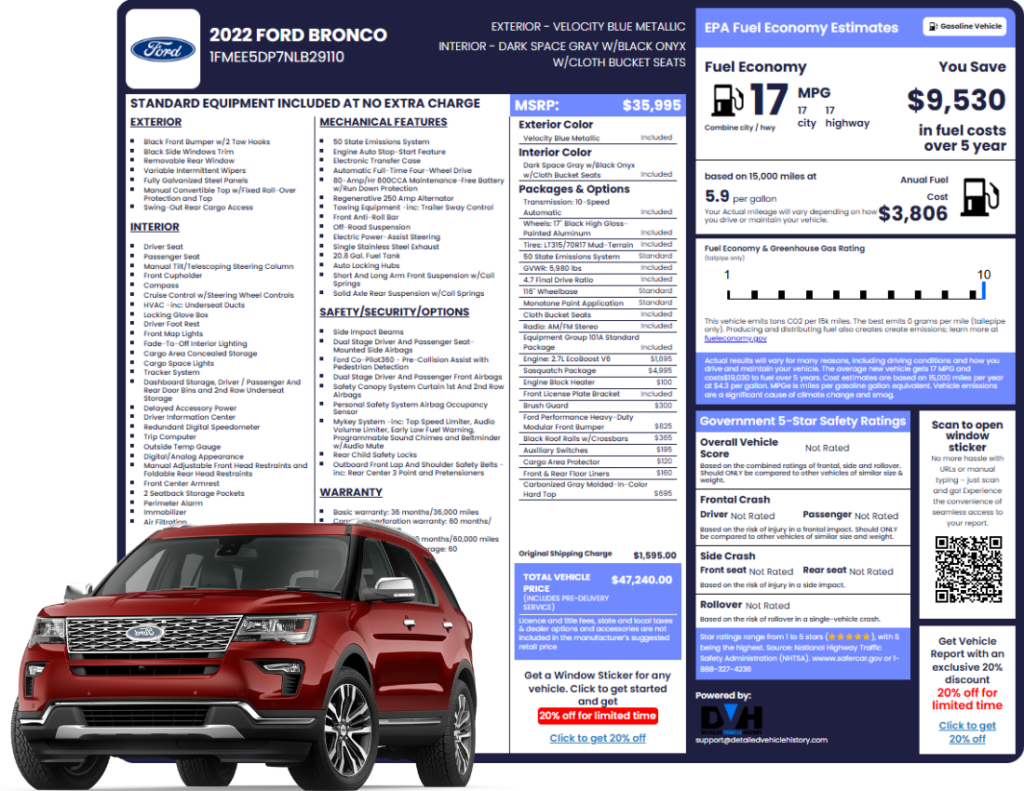
Why Use Detailed Vehicle History to Check Subaru Recall?
Subarus are built for reliability, but even the best cars can have hidden issues. With our Detailed Vehicle History report, you’ll see full Subaru recall details, including affected components, repair details, and past issues.
We also provide in-depth records of title records, past owners, theft records, accident records, lien/loan records, and more. Make informed decisions and ensure your Subaru is safe with our all-encompassing vehicle history report.
Recall Check For Others Manufacturers
FAQ about Subaru Recalls Check
Q. How can I check if my Subaru has a recall?
To check for Subaru recalls, visit the NHTSA website and enter your VIN. For a more comprehensive report, use Detailed Vehicle History, not only by VIN but also with the license plate to get insights on recalls, defects, title records, past owners, theft records, accident records, lien/loan records, and more for your specific Subaru.
Q. What is the latest recall on Subaru?
As of September 2025, Subaru has issued a recall for the 2023-2025 Solterra electric SUV due to a software defect affecting the HVAC system. This issue, which also affects the Toyota bZ4X and Lexus RZ models, can cause the defroster to fail, risking visibility and safety.
Dealers will update the software free of charge. Always check for the latest recalls by performing a Subaru recall check by Detailed Vehicle History for peace of mind.
Q. Can I find out if my Subaru has had a previous recall?
Yes, by checking your Subaru’s VIN or license plate in Subaru Recall Check by Detailed Vehicle History, you can find out not only the current recall, but also past recalls, ensuring peace of mind.
Q. What happens if I ignore a Subaru recall?
Ignoring a Subaru recall could lead to serious safety risks, such as malfunctions or accidents. Unresolved issues could worsen, increasing the likelihood of expensive repairs, insurance denial, or liability in a crash.
Always address recalls promptly to ensure your vehicle’s safety and maintain its resale value.
Q. Is there a Subaru recall on CVT transmissions?
Yes, Subaru recalls have been issued for certain models like the 2019–2020 Ascent, 2020 Legacy, and 2020 Outback related to CVT transmissions.
A software defect in the Transmission Control Unit (TCU) caused transmission slippage, leading to power loss. Subaru fixed it by reprogramming the TCU and replacing damaged components when necessary.
Q. What year Subaru Outback had the most recalls?
As of September 2025, the 2010-2014 Subaru Outback models had numerous major recalls and reported issues, including problems with the windshield wiper motor, CVT transmissions, subframe corrosion, brake lines, and infamous Takata airbags.

